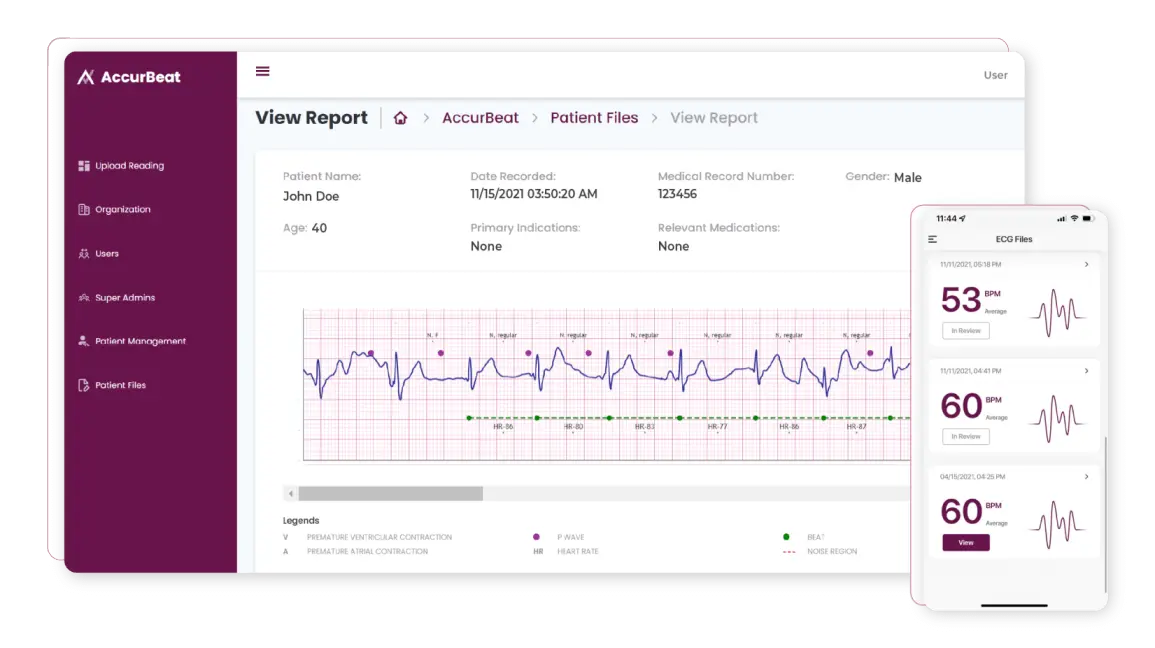
What You Should Know:
– AccurKardia, an innovator in ECG-based diagnostics technology, has announced that its Aortic Valve Stenosis (AVS) ECG-based AI screening software has been granted Breakthrough Device Designation by the U.S. Food and Drug Administration (FDA).
– The company’s AVS screening software aims to leverage the ubiquity of the electrocardiogram (ECG) to identify potential cases of AVS within millions of ECGs already present in healthcare system electronic health records in order to help identify and prioritize which patients should receive echocardiograms for definitive diagnosis.
AccurKardia’s AI-Driven ECG Diagnostics: Advancing Aortic Valve Stenosis Detection and Global Healthcare Efficiency
AccurKardia, a leading ECG-led diagnostics software company, is focused on transforming ECG data into a valuable biomarker to enhance patient outcomes and save lives globally. With its initial focus on cardiology, AccurKardia provides innovative cloud-based diagnostic tools, including AccurECG™4, an FDA-cleared Class II software as a medical device (SaMD) that offers fully automated, near real-time ECG interpretation.
Aortic valve stenosis (AVS), a life-threatening structural heart condition prevalent in elderly patients, poses a significant challenge in early detection. Despite being typically identified through bedside examination, auscultation, and confirmed via echocardiography, many cases go undetected due to factors such as:
– Poor symptom recognition by elderly patients
– Absence of a detectable murmur in some cases
– Time constraints in primary care settings
– Limited access to echocardiography in certain regions
The impact of underdiagnosing AVS is severe. Untreated AVS has a mortality rate of up to 50% within one year and results in approximately $10,000 in increased healthcare costs per untreated patient annually. Alarmingly, up to 50% of AVS cases are not diagnosed until post-mortem, representing a critical gap in timely intervention.
AccurKardia addresses these challenges through its novel AI technology, which complements the ECG—a widely accessible diagnostic test—by enabling earlier and more efficient identification of at-risk patients. This innovation is particularly beneficial in underserved regions where access to cardiology specialists and advanced imaging is limited. Additionally, by facilitating earlier detection and treatment, AccurKardia’s technology has the potential to reduce healthcare costs significantly while optimizing resource utilization and contributing to the sustainability of healthcare services.
“Our mission is to improve patient outcomes and save lives by transforming ECG into a broad biomarker, with initial focus in cardiology,” said Juan C. Jimenez, co-Founder and CEO of AccurKardia. “Our AVS detection technology is the first application of its kind in the detection of structural heart disease, where the condition is chronically underdiagnosed, has a high mortality rate, and can otherwise be treated successfully. Not only will patients benefit from improved outcomes, but payers will benefit from reduced costs, particularly from fewer heart failure hospitalizations. Hospitals systems that adopt it could also benefit from improved utilization of their Heart Teams.”
